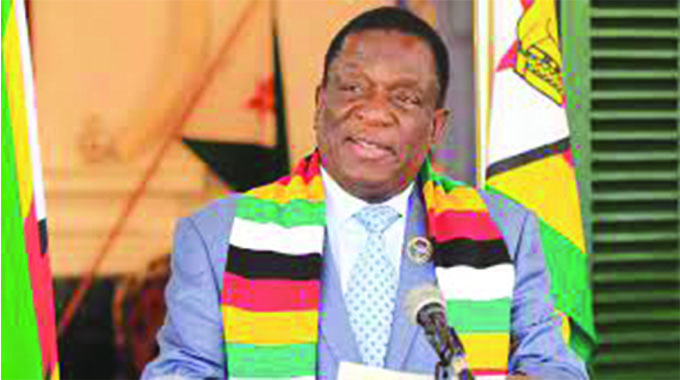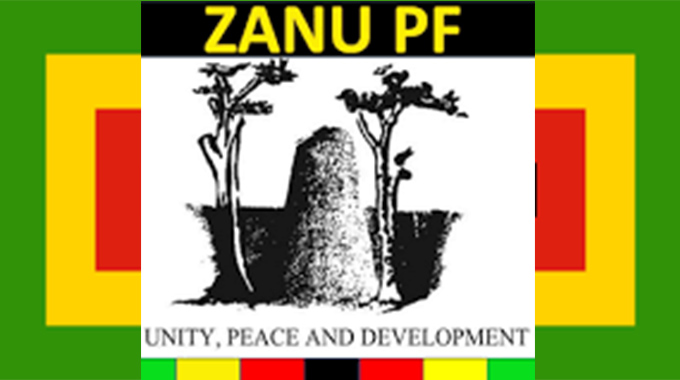
The Sunday News

Richard Runyararo Mahomva
Mugabe: Hero or Villain?
Having contributed to “Re-membering Robert Gabriel Mugabe” (Sabao, Mahomva and Mhandara, 2020) as guided by Homi Bhabha (1991)’s call to truthfully reconstructing Africa’s disjointed past and reaffirming her dignity in world affairs, for me, February 21 is just more than the birthday of Zimbabwe’s former President.
It is an annual reminiscent part of our calendar to honouring Robert Mugabe’s luminary role in the displacement of colonialism. It is a day for all to recall his inspiring role in the decimation of neo-colonialism and his strategic genius in promoting the longevity of Zanu-PF in the most turbulent turning points of our national revolution.
In all this, Cde Mugabe was never a saint, especially to those who were opposed to his relentless fight against the trappings of neo-liberal imperialism.
Given the surfeit of the mundane Mugabe-phobia perpetuated by regime change scholars and media, I am more concerned about Mugabe the protagonist and not Mugabe the Western-constructed “dictator” and leader of a (neo-colonial imagined) “pariah/crisis-ridden” State.
My re-membering of Mugabe over the years has empirically focused on his indelible role as an unswerving nationalist, Pan-Africanism devotee, doyen of Zimbabwe’s agrarian reform, great nation-builder and arch-ideologue of our national liberation.
In joining the global anti-colonial community’s commemoration of the RG Mugabe centenary, it must be unequivocally stated that the late Head of State was a hero yesterday, a hero today and the centuries to come.
Happy belated birthday, Gushungo!
When Mugabe Left
Robert Mugabe’s negotiated exit in November 2017 was a bitter-sweet experience. Bitter, in the sense that his legacy had been dented by the factional incongruences which had befallen Zanu-PF.
Thanks to the civil-military-aided transition which salvaged Mugabe from being deposed in a manner which was not commensurate with his iconic stature.
That way, Zanu-PF was nursed back to its sanguine revolutionary status as the party of liberation as it had eliminated counter-reactionary elements.
Consequently, his protégé for five decades, Dr Emmerson Dambudzo Mnangagwa, took over from him as President of the Republic of Zimbabwe and the ruling party, Zanu-PF.
As part of President Mnangagwa’s re-membering project, the late Robert Mugabe has been loftily immortalised through the multi-million-dollar refurbishment of our main national airport, named after him in the last days in office.
The revamped Robert Gabriel Mugabe International Airport is an evident symbol of the love which the current establishment has for Mugabe — the hero, founding father of the nation and ideological steward of Zanu-PF.
Even those who hated Mugabe to the point of imposing sanctions on Zimbabwe go in and out of the titivated airport named after their ideological tormenter.
His memory is with us every day and history will never forget him. His legacy remains imprinted on those who loved and hated him. In affirming his prominence into the future, 21 February has been designated as the Robert Mugabe National Youth Day. This way, all our youth will be motivated to emulate Mugabe for his outstanding role in the defence of our national interests.

President Mnangagwa
Party construction
Zimbabwe’s anti-colonial metamorphosis from the days of the National Democratic Party (NDP), right up to the formation of the Zimbabwe African People’s Union (ZAPU) and the subsequent formation of the Zimbabwe African National Union (ZANU) in 1963, has demonstrated the resilient and sustained growth and strength of the present-day Zanu-PF.
This owed to some cardinal principles of placing party polices ahead of individual interest. To achieve this, internal discipline must take its course as it naturally “resolves the contradictions within an individual”.
Once that is achieved, Cde Mugabe further argued: “The pull to be selfish is counterbalanced by a greater pull to be selfless; the pull to drunkenness is countered by one to moderation; the pull to disobedience is negatived by that to obedience; the pull to sexual givenness yields to sexual restraint; deviationism is corrected by compliance and individualism by collectivism. The individual must comply with the order laid down by the group. Our group is the party called ZANU.”
(Central Committee Meeting Address, August 1977).
According to Cde Mugabe, the then ZANU was the institutional convener of rules and regulations which produced a party-line guided conduct for its membership. This principle has not changed.
Therefore, both the party member and supporter are subjects of this order and its ideological standards. Throughout his presidency, Robert Mugabe is reputed for constantly submitting himself to his party’s constitution and the entirety of the processes it demanded in the running of Zanu-PF and its organs.
This is a virtue which has been absent in our opposition, particularly the Citizen Coalition for Change (CCC), formerly led by Advocate Nelson Chamisa. The CCC still has no constitution to this day.
This is embarrassingly ironic considering that Chamisa is a lawyer — notwithstanding that most of his then-appointees are lawyers, too.
Surprisingly, him and his handpicked inner circle did not find anything abominable about being a constitutionless “government-in-waiting”.
It even becomes more preposterous when the same opposition party making unwarranted clamours for the rule of law has no self-governing laws. Through its proxy social movements, the CCC and its unborn successor factional outfit demand the opposite of their inherent lawlessness from Zanu-PF.
On the other hand, the same Zanu-PF accused of circumventing the rule of law in Zimbabwe is legally constituted body, which operates under reasonable constitutional instruction.
To make matters worse, Chamisa, a lawyer himself, found nothing amiss about being a “lawless” operator of the same anarchical political formation he later abandoned.

To the convenience of his folly, he blamed Zanu-PF infiltration for his anarchical-elicited demise. The perennial factional degeneration of the anti-Mugabe opposition movement, which originated from the penchant to discredit the Land Reform Programme, failed to competitively challenge Zanu-PF due to its strategic force.
The same is absent in opposition politics. The armed struggle tradition and respect of hierarchy have kept Zanu-PF intact owing to the foundation linked to Cde Mugabe and his contemporaries within the nationalist movement.
The continued popularity of Zanu-PF is a dividend of the party’s adherence to principles of discipline, constitutionalism and egalitarianism. All these principles have served as ingredients of Zanu-PF’s longevity in power.
Without doubt, all these are a product of Mugabe’s outstanding political gamesmanship, which was pivoted on the power of mass mobilisation. This principle was evoked in the run-up to the 2023 election through the Musangano Kumasero approach.
The strategy affirmed the need for the party’s support base to be anchored on ward/cell-based organisation of the party. Mugabe underscored the importance of the principle as follows: “There is need for us to seriously revisit the cells, branches and districts as these constitute the tried and tested bedrock of our support. Factionalism and the other ills which have tended to affect top party leadership have marginalised the lay members of the party and this has led to enfeebled party work. We need to re-establish genuine bonds with the grassroots membership of the party as this is the only way that we can keep in touch with the always changing needs of the majority. I believe that our greatest challenge today, nay, for all time, is to ensure that we are, without doubt, in touch with people’s aspirations.” (National Consultative Assembly, July 2000).
On the other side of the political divide, Chamisa’s then party did not have structures. Instead, he deployed what he called strategic ambiguity, while Zanu-PF reverted to the ideological drill of its late founding father, Robert Gabriel Mugabe, and emerged victorious in the 2023 harmonised elections.
Such is the inescapable influence of Robert Mugabe’s teachings in mapping the future of anti-colonial nationalist politics in Zimbabwe. The occasion of Mugabe’s centenary last week should inspire all of us to unread the colonial misreading of Mugabe’s greatness in understanding how he formed an enduring ideological thought-power for party construction and how he is still relevant to Zanu-PF’s longevity strategies from the grave.
Long live, Robert Gabriel Mugabe!
Richard Runyararo Mahomva is the Director International Communication Services in the Ministry of Information, Publicity and Broadcasting Services






